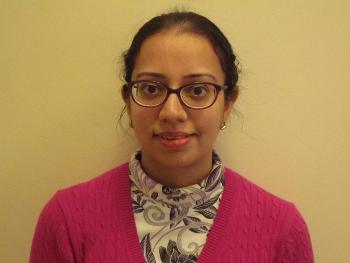Richard Frenkiel and Martin Yarmush, professors in the Rutgers School of Engineering, have been named fellows of the National Academy of Inventors. The academy announced its 2015 fellows Dec. 15. They include 168 inventors who collectively hold more than 5,300 U.S. patents. This year’s class brings to 583 the number of NAI fellows, including 310 members of the National Academies, 32 recipients of the U.S. National Medal of Technology and Innovation and 27 Nobel Laureates.
“Professors Frenkiel and Yarmush are two of the most accomplished and honored professors among the many Rutgers faculty members who have earned worldwide reputations for their research achievements,” said Christopher J. Molloy, the university’s senior vice president for research and economic development. “It’s noteworthy that these two highly productive engineers have enjoyed repeated success in the business world, both in technology commercialization and in the corporate sector.”
Frenkiel, who is a cellular pioneer recognized for his contributions to establishing the world’s first cell phone networks, earned a master’s degree in engineering mechanics from Rutgers in 1965. He joined Bell Labs in 1963 and quickly became involved in the design of cellular systems, which he worked on for 16 years. He co-authored the technical report on cellular that AT&T submitted to the FCC in 1971, which became the basis for the first cellular systems.
For his work in cellular and cordless, Frenkiel received the IEEE Alexander Graham Bell Medal in 1987, the Achievement Award of the Industrial Research Institute in 1992, the National Medal of Technology from the president of the United States in 1995 and the Draper Prize in 2013. He was named N.J. Inventor of the Year in 1995 and was elected to the National Academy of Engineering in 1997. He received the Rutgers Alumni Association’s Engineering Achievement in 2004.
After the commercialization of AT&T's first cellular system in Chicago, Frenkiel moved into consumer electronics, becoming head of R&D for AT&T's cordless telephone business and leading the team that designed a series of cordless telephones that set a new standard of voice quality with improved battery life and security, moving cordless telephones from unreliable gadgets to useful telecommunications devices. Following 30 years at AT&T, Frenkiel joined WINLAB (the Wireless Information Networks Laboratory) at Rutgers in 1993, where he serves as senior adviser.
Frenkiel served two terms on the Township Committee of Manalapan Township and was mayor of Manalapan in 1999.
Martin Yarmush, M.D., Ph.D., is as the Paul and Mary Monroe Chair and Distinguished Professor of Biomedical Engineering and director of Rutgers’ Center of Innovative Ventures for Emerging Technologies. He is internationally recognized as a pioneer in numerous fields of biotechnology and bioengineering, including applied immunology and bioseparations, metabolic engineering, tissue engineering and regenerative medicine, BioMEMS and nanotechnology and medical devices. He is the recipient of more than 25 local and national awards, such as being named a 2013 Top 20 Translational Researchers by Nature Biotechnology and the 2015 Pritzker Distinguished Lecturer Award from BMES. He has published more than 500 articles and book chapters, and serves as editor in chief for three peer-reviewed journals.
Yarmush holds 22 patents in the field of biotechnology and bioengineering, 11 of which have been licensed. His most significant patents are his double gel/collagen sandwich patents and his micropatterned hepatocyte patents, which helped to revolutionize drug discovery and toxicology in the biotech and pharmaceutical industries by providing robust techniques for long-term culture of hepatocytes for drug testing. Yarmush has co-founded 10 start-up companies and has recently been instrumental in the development of two breakthrough technologies. One is an automated robotic venipuncture device (Vasculogic) and another is stem cell bioreactors for treating organ failure (Sentien Biotechnologies).
About Rutgers
Rutgers, The State University of New Jersey, is a leading national research university. Established in 1766 and celebrating a milestone 250th anniversary in 2016, the university is the eighth oldest higher education institution in the United States. More than 67,000 students and 22,000 faculty and staff learn, work, and serve the public at Rutgers locations across New Jersey and around the world. Rutgers University–New Brunswick is the only public institution in New Jersey represented in the prestigious Association of American Universities. Rutgers is a member of the Big Ten Conference and its academic counterpart, the Committee on Institutional Cooperation, a consortium of 15 world-class research universities. Rutgers is among the top 30 universities nationally for total R&D funding and last year achieved an 18.3% increase in overall funding for research and sponsored programs in the last fiscal year over the previous year, from $518 million in fiscal year 2014 up to $613 million last year. The Office of Research and Economic Development is a central point for industry to access Rutgers and offers a website designed for the business community, businessportal.rutgers.edu.









